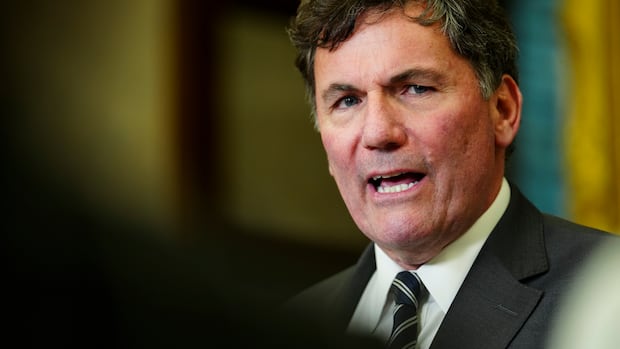
A week of political debate over a shocking report alleging that some parliamentarians aided foreign meddling in Canadian politics has solidified one point of consensus: the need to pass an anti-foreign meddling bill before the next federal election.
Bill C-70, dubbed the “Countering Foreign Interference Act,” was introduced in early May and is currently under consideration by a parliamentary committee on public safety and national security.
Late last month, the Conservative opposition offered to help pass the bill swiftly so that its measures are in place before the next federal election.
“Conservatives will work in good faith to ensure the rapid progress of Bill C-70 through the House while ensuring sufficient scrutiny of the bill’s measures,” Conservative foreign affairs critic Michael Chong said in a letter at the time.
In an interview on Rosemary Barton Live that aired Sunday, NDP MP Jenny Kwan — who says CSIS has told her she has been targeted by the Chinese government — said some amendments to the bill would be introduced, but that it did need to be in place before the next election.
“That process will unfold, but absolutely this law needs to be in place before the next election,” Kwan told CBC chief political correspondent Rosemary Barton.
The Bloc Québécois also told CBC News it would be putting forward some amendments to the legislation. The bill was unanimously sent forward to committee consideration late last month.
Bill C-70 would introduce new criminal provisions against deceptive or surreptitious acts, allow for the broader sharing of sensitive information and establish a foreign influence transparency registry.
Dominic LeBlanc, minister of public safety, responds to a question about how a report from the National Security and Intelligence Committee of Parliamentarians (NSICOP) said the government needed to take foreign interference more seriously.
The bill recognizes that states might engage in interference to advance foreign political goals, and can employ people to act on their behalf without disclosing ties to the foreign state.
The transparency registry would require certain individuals to register with the federal government to help guard against such activity.
The government has said it will look to pass the bill swiftly.
When it comes to the elements of the bill that are within the government’s control, Public Safety Minister LeBlanc said while appearing at a parliamentary committee for public safety hearing Thursday that “we will ensure that they’re in place” for the next election.
“We can’t control the Senate process but we’ll do everything in a power to make sure legislation of this nature is prioritized,” Justice Minister Virani said during the same committee meeting.
While parties have so far agreed to move the bill quickly through the legislative process, some groups have expressed concerns about the contents of the bill and the accelerated process.
David McGuinty, MP and chair of the National Security and Intelligence Committee of Parliamentarians, says he and members of the committee who compiled the report could be prosecuted if they release the names of parliamentarians alleged to have conspired with foreign governments.
In a letter Thursday to the public safety committee, 14 civil society groups expressed “deep concerns” that MPs are wrapping up hearings on the bill after only about a week.
The organizations warned that the unusually swift parliamentary study of the bill could result in flawed laws that violate people’s rights.
“We need to protect our democracy. That means also protecting our civil liberties and not rushing this Bill before its current pitfalls are properly addressed,” the National Council of Canadian Muslims said in a social media post.
The NCCM flagged what they saw as several issues with the bill, including an unclear definition of “intimidation” and broader powers for CSIS and the federal immigration minister.

